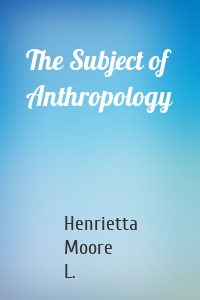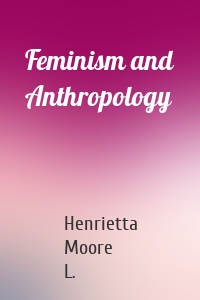Henrietta Moore L.
4 кн.
Still Life. Hopes, Desires and Sati...
How adequate are our theories of globalisation for analysing the worlds we share with others? In this provocative new book, Henrietta Moore asks us to step back and re-examine in a fresh way the interconnections normally labeled 'globalisation'. Rather than beginning with abstract processes and flows, Moore starts by analyzing the hopes, desires and satisfactions of individuals in their day-to-day lives. Drawing on a wide range of examples, from African initiation rituals to Japanese anime, from...
| Автор | Henrietta Moore L. |
A Passion for Difference
In this new book Henrietta Moore examines the nature and limitations of the theoretical languages used by anthropologists and others to write about sex, gender and sexuality. Moore begins by discussing recent feminist debates on the body and the notion of the non-universal human subject. She then considers why anthropologists have contributed relatively little to these debates, and suggests that this has much to do with the history of anthropological thought with regard to the conceptualization...
| Автор | Henrietta Moore L. |
The Subject of Anthropology
In this ambitious new book, Henrietta Moore draws on anthropology, feminism and psychoanalysis to develop an original and provocative theory of gender and of how we become sexed beings. Arguing that the Oedipus complex is no longer the fulcrum of debate between anthropology and psychoanalysis, she demonstrates how recent theorizing on subjectivity, agency and culture has opened up new possibilities for rethinking the relationship between gender, sexuality and symbolism. Using detailed...
| Автор | Henrietta Moore L. |
Feminism and Anthropology
This is the first book which examines the nature and significance of a feminist critique in anthropology. It offers a clear introduction to, and balanced assessment of, the theoretical and practical issues raised by the development of a feminist anthropology. Henrietta Moore situates the development of a feminist approach in anthropology within the context of the discipline, examining the ways in which women have been studied in anthropology – as well as the ways in which the study of gender has...
| Автор | Henrietta Moore L. |





